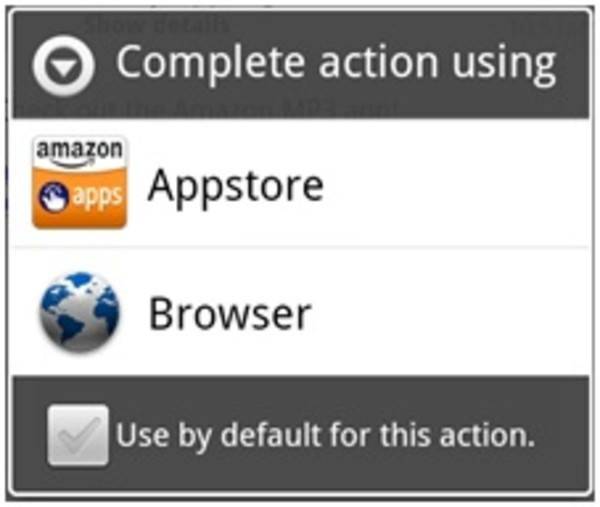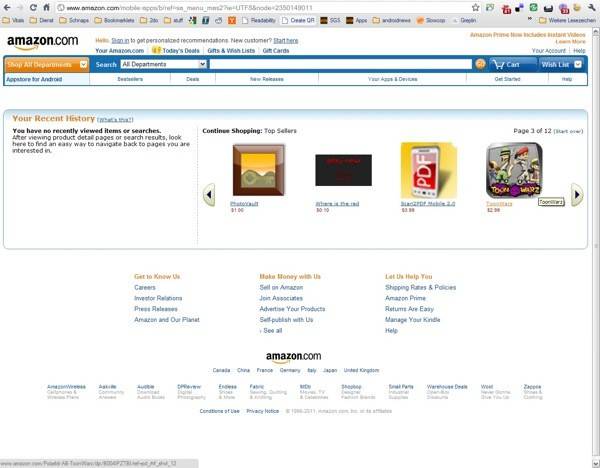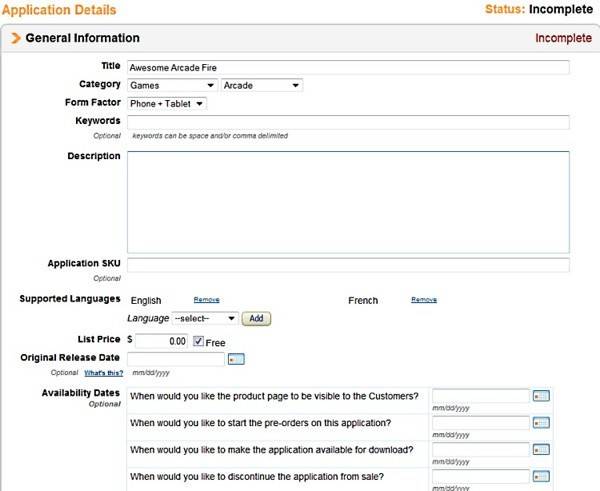Amazon may be launching its Android App Store tomorrow, according to a new report, just in time to kick off this week’s CTIA Wireless 2011 conference in Orlando, Florida. An unnamed “trusted source” told Wired that the store will launch Tuesday, March 22. Customers will be able to purchase apps both online via the Amazon website and through a native application designed for Android devices.

Thanks to a post on the Amazon AppStore Developer blog, we already know that the store’s launch will come with at least one major exclusive: the latest in Rovio’s Angry Birds lineup, Angry Birds Rio, will launch first in the Amazon App Store before being distributed to other online outlets.
No Linking to Official Market, Says Amazon
In Wired’s report, the tipster told the news outlet that the apps sold in the Amazon store cannot link out to the official Android Market when promoting other downloads using links within a given application. Those links have to point to Amazon’s market instead.
A February blog post from Amazon explained to developers how they should configure apps to launch links like those using the Amazon Appstore mobile application. After downloading a third-party app using the Appstore client, users can return to the original app that had offered the link and continue using it, the post explained.

The post also noted that apps can be purchased via Amazon’s 1-Click feature, whether the apps are free or paid.
Sneak Peek at the Amazon Appstore
Last week, the Amazon Appstore was accidentally revealed when a curious Android fan decided to check out the website address www.amazon.com/apps to see if anything was there. Much to his surprise, the website was up and running, with a horizontal slider that let him browse through 48 different mobile applications and see their prices.

The poster took screenshots, of course, and then later compared the prices between the Amazon store and Google’s Android Market. In many cases, the apps were less expensive on Amazon’s site, he found. There were also several exclusive titles listed. (See the comparison chart here).
Why Amazon’s Store is Notable: Curation and Pricing
Amazon’s app store is an interesting development for the mobile application industry for several reasons, only one of which is because it hints at a future Android-based tablet from the online retailer. (An Android Kindle, perhaps?)
More importantly, the store represents the first attempt by a major retailer to offer a “curated” selection of Android applications for sale. That means the apps that stock Amazon’s virtual shelves will be reviewed and tested. According to Amazon’s rules, the apps must work properly and be safe, both in terms of consumer data privacy and the impact to the mobile device itself. In other words, it’s a selection of mobile applications that won’t slow your phone to a crawl or drain your battery. You can also stop worrying about whether or not an app is safe to use when it’s downloaded from Amazon, as all will be screened for malware.
In light of the recent malware outbreak on Google’s official market, which saw over 50 applications infected with a malware program called “DroidDream,” the need for increased security measures was highlighted. The worst part of that story was how a developer whose app was ripped off by the malware creator had contacted Google though all the official channels a week prior to the news breaking, and Google had taken no action.

Amazon’s app store will also introduce a new pricing model for Android developers, which will be an interesting experiment. Instead of offering app developers the standard 70%/30% split, developers will tell Amazon what they want to list the application for. Amazon, however, will set the pricing as it sees fit. Developers will then receive 70% of the revenue earned, unless Amazon deeply discounts or gives the app away for free. In that case, the developer will see 20% of the original “list” price.
This is a big departure from how competing application stores, including iTunes, sell apps. Traditionally, the app prices have always been set by the retailer. But Amazon knows how to list items to move. When it comes to setting pricing, Amazon’s experience may end up helping developers sell more apps than they would have otherwise.

















